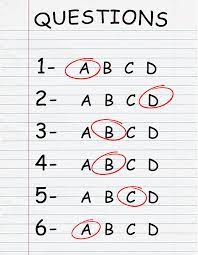AEIS Singapore Passing Rate
International students aiming to study in Singapore’s public schools face the Admission Exercise for International Students (AEIS), a significant national exam administered by the Ministry of Education.
Parents frequently inquire about the level of challenge presented by the AIES, as they seek to assist their children in test preparation.
Historical data indicates that the pass rate for this examination hovers around 25%, indicating that a significant portion of international students who undertake this assessment encounter difficulties in answering all questions accurately.
Understanding the ins and outs of this assessment is crucial, as it can greatly impact a student’s academic journey. In this section, we will introduce you to the AEIS, explain its purpose, and shed light on a recent change regarding the English component for primary school applicants.
Request an AEIS Home Tutor Here
Or Click here to message us on WhatsApp
The Significance of AEIS
The AEIS exam holds paramount importance for international students seeking admission to Singapore Public Schools. It’s typically conducted in September or October, paving the way for students to enter the following academic year.
However, a recent update necessitates primary school applicants to complete the Cambridge Education Qualifications (CEQ) as part of the admission process, replacing the English component previously included in the AEIS and S-AEIS assessments. Here’s a glimpse of what you need to know about the AEIS:
- What is AEIS?
The Admission Exercise for International Students (AEIS) is a national exam conducted by the Ministry of Education in Singapore. - When is it Held?
AEIS exams are usually scheduled for September or October, setting the stage for students’ enrollment in the following academic year. - Recent Update:
It’s essential to note that primary school applicants no longer have the English component included in the AEIS and S-AEIS assessments. Instead, they must complete the Cambridge Education Qualifications (CEQ), with both paper-based and computer-based test scores accepted during the registration process.
Eligibility and Importance
Eligibility Criteria for AEIS
International students who are neither Singapore citizens nor permanent residents (PR) must pass the AEIS to be considered for admission in Singapore Public Schools. Private school applicants, on the other hand, are exempt from this requirement. To make it even clearer:
- Who is Eligible?
International students, excluding Singapore citizens and PRs, need to pass the AEIS for admission to public schools. - Public vs. Private School Applications
The AEIS requirement applies exclusively to students intending to enroll in a public school. If your child’s destination is a private institution, there’s no need for AEIS.
Understanding these eligibility requirements is the first step in navigating the AEIS landscape. It’s a testament to Singapore’s commitment to providing quality education while catering to the unique needs of international students.
A Shift in Primary School Admissions
A notable shift in primary school admissions raises pertinent questions about the difference between public and private schools in Singapore. As parents, it’s crucial to make informed decisions for your child’s educational journey. Two significant distinctions set these schools apart:
Curriculum Differences
- Public Schools:
Public schools follow the internationally acclaimed Singapore curriculum developed by the Ministry of Education (MOE), Singapore. - Private Schools:
Private schools, conversely, have the flexibility to develop their own curriculum, which may differ from the MOE’s structure.
Parents need to explore these curriculum differences and weigh the pros and cons carefully before selecting the best educational path for their children.
Financial Considerations
- Public Schools:
Public schools are generally more cost-effective compared to private schools. - Private Schools:
Private schools often come with higher fees, reflecting the autonomy they have in crafting their educational programs.
Making the Right Choice
Choosing between public and private schools requires a thorough understanding of the curricula, along with a clear assessment of your financial capabilities. As a parent, it’s vital to make an informed choice that aligns with your child’s needs and your family’s budget.
In the next section, we’ll guide you through the process of registering your child for the AEIS, emphasizing the importance of early registration due to limited seat availability. Let’s delve into the details of how to secure a spot for your child and prepare them for this essential examination.
Request an AEIS Home Tutor Here
Or Click here to message us on WhatsApp
Eligibility and Importance of AEIS – AEIS Singapore Passing Rate
In the previous section, we introduced the Admission Exercise for International Students (AEIS) and emphasized its significance in the education landscape of Singapore. Now, let’s dive deeper into the eligibility criteria for taking the AEIS exam and explore why this test plays a pivotal role in the admission process for international students in Singapore.
Who Can Take the AEIS?
Understanding whether your child is eligible to take the AEIS is the first step towards preparing for this important examination. Here’s what you need to know about eligibility:
- International Students:
The AEIS is primarily designed for international students who are not Singapore citizens or permanent residents (PR). It serves as a gatekeeper, allowing these students to seek admission to Singapore Public Schools. - Admission Requirement:
For international students, especially those new to Singapore, enrolling in public schools is subject to passing the AEIS. This requirement is exclusively for those planning to attend public schools. If your child is heading to a private school, you can skip this step.
Importance of the AEIS
Now that we’ve covered the eligibility criteria, let’s delve into the importance of the AEIS and why it’s such a crucial step in the admission process for international students.
- Gateway to Quality Education:
For international students, the AEIS is the gateway to a high-quality education offered by Singapore Public Schools. These institutions follow the internationally acclaimed Singapore curriculum developed by the Ministry of Education (MOE), ensuring students receive a comprehensive and rigorous education. - Singapore’s Commitment:
Singapore’s commitment to providing quality education to all students, including international learners, is evident in the AEIS. It’s a fair and transparent assessment that ensures everyone has an equal opportunity to access top-notch education. - Smooth Integration:
By demonstrating their readiness and competence through the AEIS, international students can smoothly integrate into Singapore’s education system. This helps in building a strong foundation for academic success in the future.
A Shift in Primary School Admissions
As we have explored, the AEIS is an essential milestone for international students. It ensures they have a fair chance to access the remarkable education offered by Singapore Public Schools. However, the recent change in primary school admissions, particularly the shift away from including the English component in AEIS and S-AEIS assessments, warrants further attention.
In the next section, we will explore the differences between public and private schools in Singapore. This knowledge will empower parents to make informed decisions when choosing the best educational path for their children. We will specifically highlight the variations in curriculum and fees between these two categories of schools.
Request an AEIS Home Tutor Here
Or Click here to message us on WhatsApp
Public vs. Private Schools in Singapore
In the previous sections, we explored the Admission Exercise for International Students (AEIS), its eligibility criteria, and the pivotal role it plays in the admission process for international students in Singapore. Now, let’s shift our focus to a critical decision that parents must make – choosing between public and private schools in Singapore. This decision significantly impacts a child’s educational journey, and it’s essential to understand the differences between the two.
Curriculum Choices
One of the primary distinctions between public and private schools in Singapore is the curriculum they offer. Here’s a closer look at what each entails:
- Public Schools:
Public schools in Singapore follow the internationally acclaimed curriculum developed by the Ministry of Education (MOE). This curriculum is recognized for its high standards and rigorous approach, ensuring that students receive a comprehensive education. - Private Schools:
Private schools, on the other hand, have the flexibility to design their own curriculum. This means that the curriculum in private schools may differ significantly from the MOE’s structure.
Significance of Curriculum Choice
Understanding the curriculum differences between public and private schools is essential for parents. The curriculum forms the foundation of a child’s education, shaping their knowledge and skills. Consider these key points:
- Quality Assurance:
Public schools’ adherence to the MOE’s curriculum is a form of quality assurance. It ensures that students are exposed to a well-established and internationally recognized education program. - Flexibility:
Private schools’ autonomy in curriculum design can offer flexibility. However, it also means that the quality and rigor of education can vary significantly from one private school to another. - Parental Involvement:
Parents need to be actively involved in researching and understanding the curriculum offered by private schools. This helps in making an informed decision that aligns with the child’s educational needs.
Cost Considerations
Another crucial factor when choosing between public and private schools is the cost involved. Let’s explore the financial aspects:
- Public Schools:
Public schools in Singapore are known for being more cost-effective. They offer a high-quality education at a fraction of the cost compared to private schools. - Private Schools:
Private schools often come with higher fees. These fees can vary widely depending on the institution and the curriculum they offer.
Making an Informed Choice
Selecting the right school for your child is a significant decision. It involves considering not only the curriculum but also the financial aspects. Here are some steps to ensure you make an informed choice:
- Research:
Conduct thorough research into the curriculum offered by both public and private schools. Understand the strengths and weaknesses of each. - Visit Schools:
If possible, visit the schools you’re considering. This will give you a firsthand look at the environment, teaching methods, and facilities. - Talk to Experts:
Seek advice from educational experts or counselors who can provide insights and recommendations based on your child’s needs. - Consider Your Budget:
Assess your financial capabilities and decide whether the cost of private education is feasible for your family.
As parents, you play a crucial role in shaping your child’s educational journey. The decision to opt for a public or private school is a significant one, and it’s important to take your time and make an informed choice that aligns with your child’s needs.
In the upcoming section, we will guide you through the process of registering your child for the AEIS exam, emphasizing the importance of early registration due to limited seat availability. Let’s ensure you’re well-prepared for this essential step in securing your child’s education in Singapore Public Schools.
Request an AEIS Home Tutor Here
Or Click here to message us on WhatsApp
Registering for AEIS
Now that we’ve explored the eligibility criteria and the decision-making process when choosing between public and private schools in Singapore, it’s time to delve into the practical aspect of preparing for the Admission Exercise for International Students (AEIS). In this section, we’ll guide you through the step-by-step process of registering your child for the AEIS exam, emphasizing the importance of early registration due to limited seat availability.
Step-by-Step Guide to AEIS Registration
Here’s a comprehensive guide to registering your child for the AEIS:
- Create an Account:
- To begin the registration process, each candidate should create only one account. Once you’ve filled in the necessary details, refrain from amending them. The Ministry of Education (MOE) will use the details you provide to register your child for the AEIS test.
- Fill in the Details:
- Carefully enter all the required information. Ensure accuracy to avoid any complications in the registration process.
- Pay the Registration Fee:
- To complete the registration, you’ll need to pay the registration fee. Be prepared to make this payment to secure your child’s spot for the AEIS exam.
- Register Early:
- Early registration is essential. Seats for the AEIS are limited, and registrations close when all available slots are filled. It’s advisable to enroll your child as soon as the registration deadline is announced to ensure they get a spot.
- Points to Note:
- Pay attention to any specific points to note mentioned by the MOE during the registration process. This will help you avoid common pitfalls.
The Importance of Early Registration
One of the key takeaways from this guide is the importance of early registration. Here’s why it matters:
- Limited Seats:
The AEIS exam is highly sought after, and there are a limited number of seats available. Registrations are closed once all available spots are taken. Early registration increases your chances of securing a seat for your child. - Ample Preparation Time:
Registering early allows your child to have ample time for exam preparation. It’s essential to be well-prepared for the AEIS to increase the likelihood of success. - Reduced Stress:
Early registration can reduce stress for both parents and students. It provides peace of mind, knowing that your child has a confirmed seat for the exam. - Avoid Disappointment:
Late registration can result in disappointment if all seats have already been filled. To ensure your child has the opportunity to sit for the AEIS, register as soon as possible.
Next Steps in the AEIS Journey
As you prepare for AEIS registration, remember that this is a critical step in securing your child’s education in Singapore Public Schools. It’s a gateway to quality education and a successful academic journey.
In the next section, we will explore the perceived difficulty level of the AEIS exam based on past results. We’ll also discuss strategies and approaches for scoring higher marks in this competitive examination. Understanding the challenges and having the right tools for success is essential. Let’s uncover what it takes to excel in the AEIS.
Request an AEIS Home Tutor Here
Or Click here to message us on WhatsApp
Conclusion On AEIS Singapore Passing Rate: All About AEIS – Your Path to Success
In this comprehensive guide, we’ve covered every aspect of the Admission Exercise for International Students (AEIS), offering you valuable insights into what you need to know about this crucial exam for international students in Singapore.
In conclusion, the AEIS is a critical stepping stone for international students seeking a top-notch education in Singapore Public Schools. By understanding the eligibility criteria, the differences between public and private schools, the registration process, and strategies for success, you’re better equipped to navigate this journey.
We reinforce the significance of the AEIS in opening doors to quality education and a promising academic future. As parents, your role is crucial in making informed decisions about your child’s education and exam preparation.
To further support your child’s journey to success, we encourage you to explore Geniebook’s assessment and preparation resources. These tools are designed to enhance your child’s strengths, address weaknesses, and ultimately help them excel in the AEIS.
Thank you for joining us on this informative journey. We wish you and your child the best of luck in the AEIS and all future educational endeavors.
Request an AEIS Home Tutor Here
Or Click here to message us on WhatsApp
AEIS Singapore Passing Rate by Tuition Domain





